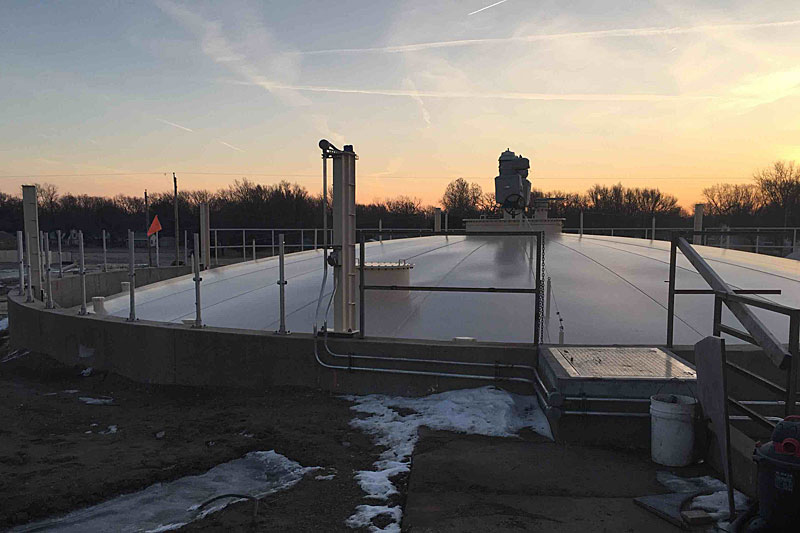

INSIGHT
RNG Coalition’s #SMART initiative will create 7.4 million clean energy jobs by 2050
Connect with us
While we are still grappling with the new realities of the Covid-19 pandemic, it is important to keep our focus on another large, imminent threat to humanity: climate change. Energy and fuel are fundamental to humanity’s progress; movement of goods and people has changed the course of human history, giving way to the global village. However, this progress comes with its own cost in the form of GHG (greenhouse gas emissions) resulting in climate change.
Renewable Natural Gas (RNG) is one in a slate of options available in fighting climate change. Renewable Natural Gas is different from traditional natural gas (fossil fuel) as it is sourced from organic waste (including from livestock, agriculture, landfills and sewage); simply put, it is the act of expediting nature’s processes in forming energy molecules (read methane) using technology. Therefore, RNG is completely interchangeable with conventional natural gas in any application domestic or commercial, including transportation fuel, heating and power generation.
In USA and Canada alone, there are 43,000 locations for collecting and managing waste where decomposition of organic waste produces biogas (methane plus carbon dioxide). These locations include 4,400 landfills, 19,000 large farms and 20,000 wastewater treatment and lagoon facilities. While some of these facilities capture and convert methane into useful fuel, most facilities either flare the captured methane or, worse, release it as fugitive emissions. According to EPA, methane has a global warming potential estimated at 23 times that of carbon dioxide; creating pathways to capture and use this methane creates a net positive impact on the environment. The biogas from these facilities can be captured and upgraded to Renewable Natural Gas (RNG).
One of the concerns often levied against policies that promote efforts to address climate change is impact on “jobs”. Many argue that good, sound environmental policies are detrimental to existing jobs. However, when new technologies become mainstream and are brought to market, new employment opportunities are also created. Whether it is the internet or an electric car, mass production and usage of technologies typically translates into a large workforce.
Capturing and converting biogas to RNG involves a gamut of technological processes. Transportation and blending of RNG involves trucking from or pipeline interconnections to new production facilities. According to a recent study1 , development of a new RNG facility creates employment in the areas of design and engineering services, 20 to 30 trade positions during construction and about 3 to 5 permanent employees for on-site operations. Ongoing operations and maintenance foster sustained employment opportunities in related sectors.
Other studies2 show incremental jobs created by RNG production facilities provide a higher income per worker of $68,960, more than twice the median income per individual in California which was the focus of the study. RNG projects are generally concentrated in rural areas, where the effects of the jobs created are significant relative to the size of the local economy and the availability of well-paying jobs. The RNG Coalition previously set a goal of doubling the number of RNG production facilities from 47 in 2015 to 100 in 2025. This goal was achieved five and a half years ahead of schedule in July of 2019 and created approximately 9,000 direct and indirect jobs.
In December 2019, the RNG Coalition challenged the industry with the announcement of its S.M.A.R.T. initiative, an acronym for ‘Sustainable Methane Abatement & Recycling Timeline’. This initiative is a call for collective action from across all sectors of the RNG industry to join together in the development of an action plan to capture the fugitive methane from the more than 43,000 aggregated waste sites—and to put an end to wasted waste by 2050. On an average each RNG project developed creates a total of 173 jobs (direct and indirect), this translates to a whopping 7.3 million high paying jobs by 2050, creating economic opportunities in communities and fostering growth.
As with any major goal this initiative needs to be broken down into sizeable chunks with benchmarks for 2030 and 2040. This requires sustaining and doubling down on the things that have made the RNG Coalition effective. It is also a continuous improvement process of developing and implementing better pro-RNG policies and increasing the adoption of these policies in wider markets to drive exponential growth for a sustainable future.
What can individuals, corporations and policy makers do to help achieve this mission? Individuals can make better choices in sourcing power and gas from companies that have sustainability goals and are including RNG as a part of their mix in meeting the sustainability goals. Individuals can affect change by supporting policy makers who support sustainability goals. Corporations can commit to the sustainability goals and source utilities from companies that are producing renewable natural gas. These behaviors drive demand for RNG, and the demand creates more projects, which in turn creates more jobs.
Learn more about Bartlett & West's renewable energy services or check out our free webinar, Cow Power: Renewable Fuel From Manure.
About the Renewable Natural Gas Coalition
The burgeoning RNG industry has been aided by the Coalition for Renewable Natural Gas (RNG Coalition). Founded in 2011, the RNG Coalition is the non-profit organization that represents the RNG industry in North America and advocates for sustainable development, deployment and utilization of renewable natural gas so that present and future generations have access to domestic, renewable, clean fuel and energy.
Sources:
1 Renewable Natural Gas Supply and Demand for Transportation: Bates White Economic consulting. April 5, 2019
2 Economic Impacts of Deploying Low NOx Trucks fueled by Renewable Natural Gas by ICF, May 2017
Tell us about your project
We’d love to work with you. Tell us the services you are seeking and one of our team members will connect with you.